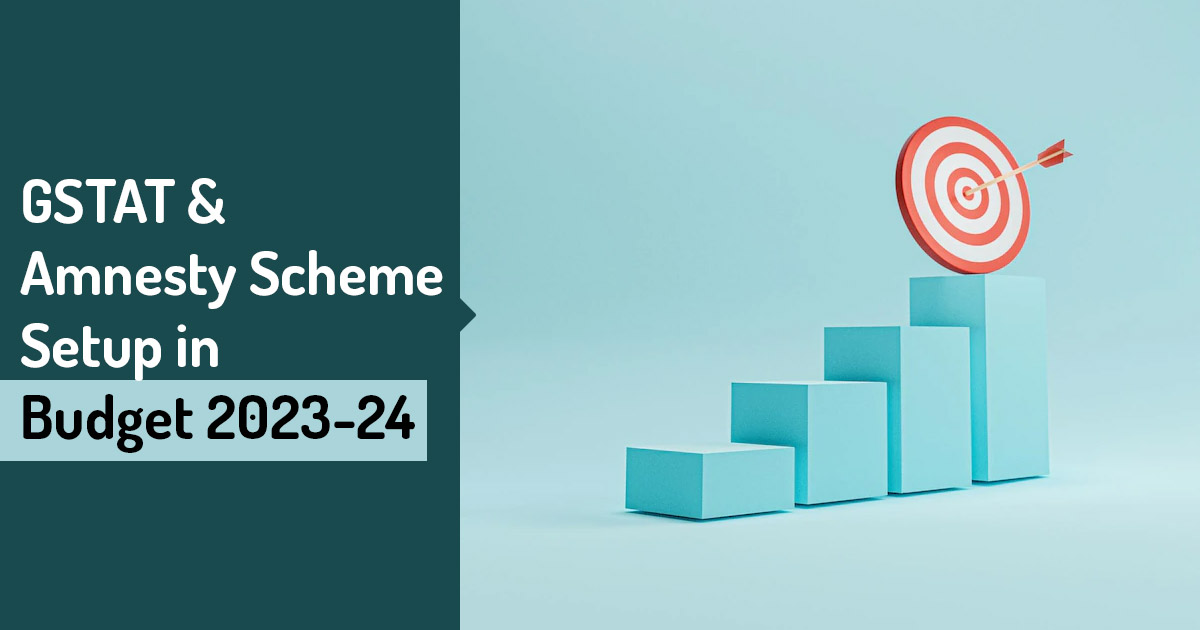
Finance Minister Nirmala Sitharaman, while presenting Union Budget 2021 referenced Rabindranath Tagore and stated that ‘faith is the bird that senses the light and sings while the morning is still black’. As another union budget release approaches, the market and residents remain hopeful and await budget pronouncements with bated breath, under the shadow of another pandemic wave.
What is GST Amnesty Scheme?
Towards the revision of the GST, Given the GST council’s responsibility in issuing notifications and circulars on a regular basis, the announcements had been kept to a minimum. It is commendable that the government has engaged in public consultations to address the problems of companies in a bigger way.
While various concerns have been handled, there are still several issues that require quick resolution, both in terms of GST and customs.
The primary expectation from this budget is the prompt implementation of an Amnesty plan to address any procedural GST issues that have emerged since its launch in 2017, particularly those arising as a result of difficulties in the GSTN interface and migration to the GST law. This would not only help to boost already high monthly GST revenues, but it will also lessen the administrative strain on GST officials who must do long inquiries/assessments.
Given the ongoing complexity, Indian tax laws continue to lower the overall ranks in terms of “ease of doing business.” Consider something as simple as routinely updating the director’s information on the GST portal. Although it could appear simple, the organization needs extensive administrative infrastructure to manage end-to-end GST compliances.
Ease in Eligibility for ITC
The conditions/restrictions on availing and utilization of Input tax credits (ITC) under Sections 16 and 17 of the Central Goods and Services Tax Act, 2017 read together with pertinent rules, are another area of the GST law that merits careful examination.
While there are several requirements that must be met in order to determine GST ITC eligibility, it appears that the ambit of tax rules is being extended to the point where administrative control is being exercised that is much outside the bounds of tax regulations. As opposed to the several criteria mentioned in the current statute, ITC eligibility should be determined by a single test of “activities connected to the business.”
In addition, it appears that the legislation interferes with the eligibility of ITC not only for non-payment of tax but also for non-payment of consideration to the supplier, which is the cornerstone of the parties’ business agreement.
What is GST Appellate Tribunal?
The GST Appellate Tribunal is essential on the assessment/litigation front in order to prevent the High Court from taking up regular GST litigations. The Government should also take into account standardizing the practice and procedures to be followed for audit, investigation, or recovery, as well as centralizing adjudication of all open assessments of a taxpayer in order to prevent divergent positions taken across locations by different officers.
Customs’ expectations
The Manufacturing and Other Operation in Warehouse Regulation (MOOWR), which was recently reintroduced from a customs perspective, offers simpler compliance than Export Oriented Units (EOUs), which enjoy benefits that are almost identical. The industry anticipates that a one-time option to convert EOUs into MOOWR units without affecting duty obligations would be included in the budget.
Additionally, it is anticipated that the allowance of depreciation on capital goods (CG) would be made when calculating the duty liability associated with the elimination of CG from MOOWR units. The administrative burden of discharging obligation for customs duty saved on inputs with each clearance is another significant flaw with MOOWR. The procedure might be made simpler and the amount of time, effort, and transaction costs could be reduced by using a very simple system for payback of duty at regular intervals.
Significantly, even though the FM had previously stated that a new SEZ law will be introduced in the upcoming budget, the quick presentation of the bill (DESH) and the new Foreign Trade Policy will spur investments from both inside and outside the nation that had been on hold up until now.







